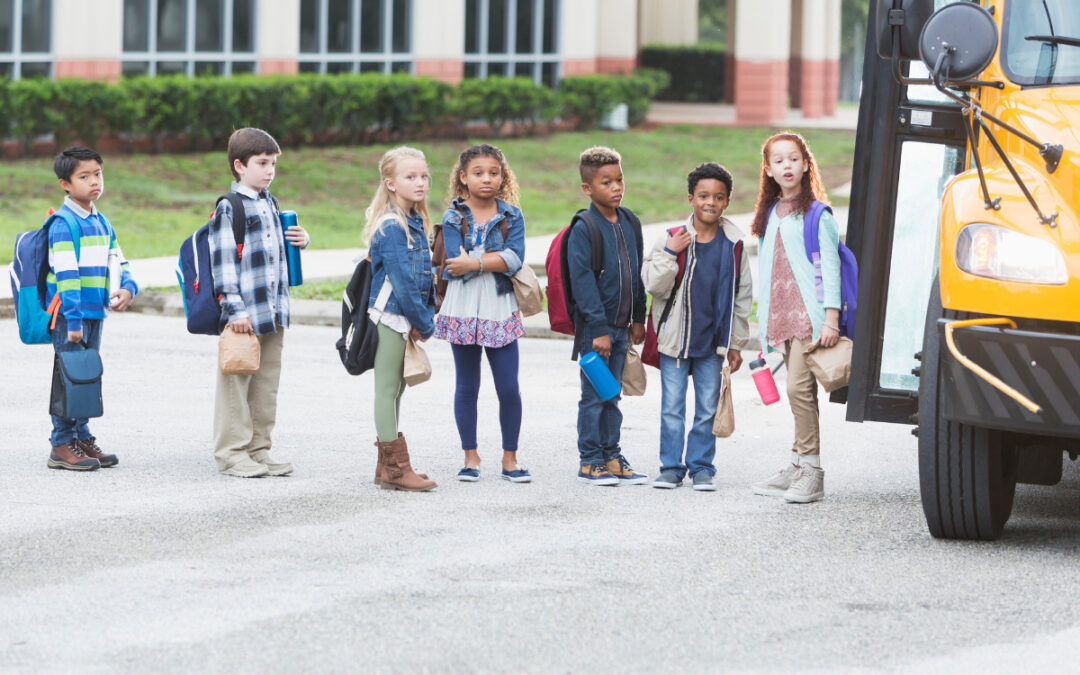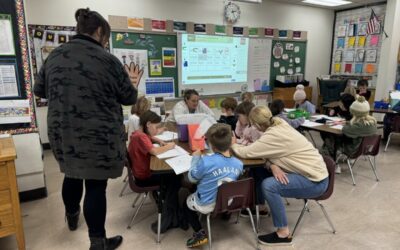
FILE – Protesters greet then-Gov. Scott Walker at an April 2011 hearing before the House Oversight and Government Reform Committee on Capitol Hill in Washington, DC. The hearing was to examine the fiscal problems faced by states and municipalities and the role of federal government on dealing with those problems. (Photo by Alex Wong/Getty Images)
It’s been 13 years since former Gov. Scott Walker’s assault on public education, setting in motion a budget mess that impacts discussions today about the biggest challenges facing schools.
The hot topic at the Wisconsin Public Education Network’s 2024 Summer Summit was the ongoing and worsening impact of a law that has been in place for more than a decade. Act 10, signed by Republican Governor Scott Walker in 2011, imposed crippling limits on unions for teachers, which resulted in low salaries,an ongoing shortage of employees in Wisconsin’s public education system, and impacts on children.
About 300 state instructors, school leaders, parents, school board members, and district leaders took part in the 10th annual summit, held in late July at Madison La Follette High School, with guest speakers and around two-dozen different breakout sessions, including the legacy of Act 10. to discuss topics of interest in education.
Other topics included the challenges schools face to provide a quality education for all students in a state that has one of the largest gaps of academic success between white students and students of color. The latest 2022 math and reading state test results show Wisconsin had the 2nd largest score difference between Black and white students in the nation.
WPEN Executive Director Heather DuBois Bourenane was excited by how many people have continued to attend the event since the first gathering. “Our Summer Summits have become a sort of touchstone for public education advocates around the state,” she said. “We have conversations about issues we are concerned about prioritizing in the year ahead.”
Additionally, she noted, public schools lack adequate resources for teaching special education pupils and English language learners. But whatever the topic, conversations kept circling back to how the public school system needs to improve its overall finances to provide students with the services they need. Voter referendums are currently the only viable option for local districts to raise more funding than the Legislature is willing to provide.
“We’re entering the 2024-25 school year. It’s absolutely criminal, you know?” said DuBois Bourenane. “It will be the 16th year in a row of a state budget that didn’t even keep pace with inflation from the previous year.”
Act 10 and the 2011 state budget bill cut K-12 state aid by $900 million or 8%, even as Walker and legislative Republicans cut taxes for Wisconsin’s wealthy during his time in office. Act 10 also limited the ability of local districts to compensate for the shortfall by placing caps on how much they could increase local property taxes. The resources schools are able to provide are not equal for all students across the state and vary by district.
Madison Teachers Inc. president Michael Jones, a special education teacher and Summer Summit organizer, was a panelist in the well-attended workshop, “Act 10 and Its Impacts: Lessons from Unions and the Trades” where educators discussed the challenges they have personally experienced as a result of the bill.
“The impact was immediate. Veterans close to retirement, people in the middle of their careers, and even early career educators left education altogether,” Jones said. “Working in a school used to be a conversation about a career – after Act 10, it became a discussion around surviving until one could find an off-ramp to a different job that wouldn’t be as financially unfulfilling.”
Another busy workshop at the summit discussed teacher shortages in the state. Act 10 reduced union rights for teachers, virtually wiping out collective bargaining, a tool used to advocate for better pay and working conditions. Five years after the passage of the law, median compensation for teachers dropped by 12.6%. Teachers benefits were also cut and employees have had to contribute more to their health insurance and retirement costs out-of-pocket.
“The workshop was popular for two reasons,” Jones said. “First, the recent court case is the first time in ten years that opponents of Act 10 have a fair shot at fighting this law. [Second], with fair maps, a Democratic governor, and a liberal-leaning state Supreme Court, there’s at least a chance to talk about it without having the decision pre-determined.”
Several unions filed a lawsuit to overturn Act 10 last November, in the wake of the election of Supreme Court Justice Janet Protasiewicz and progressive control of the court. Educators are excited by the prospect of collective bargaining potentially being reinstated. The public education system is experiencing high turnover rates according to recent data because of the lack of adequate financial compensation. Attendees are concerned about stagnant salaries that do not match inflation and rising living costs in Wisconsin.
“Why sacrifice nights and weekends of unpaid time to just get by?,” Jones said. “Why trust that the meeting you have with your colleague will yield positive results when it’s perfunctory and done just to check a box or make someone else look good instead of actually helping your kids or yourself? Act 10 destroyed people’s belief in our ability to improve the system.”
Attendees also discussed the rippling impacts of a weak workforce on students, whose education and social relationships are disrupted when their teachers leave after a short period of time. Young teachers exit on average after five years on the job. High turnover rates can negatively impact how students perform in tests. Pupils learn better when instructed by experienced educators.
Jones engaged in protests against Act 10 after it passed in 2011. Since then he has participated in a union, fundraising, and petitioned to the state government on behalf of educators.
“Even though that bill was passed over a decade ago, it’s clear that the impacts are still very much a reality. So people have been heartened by the fact that there is a new lawsuit gaining some traction to overturn that unjust law and restore collective bargaining rights to Wisconsin educators and other public servants,” said DuBois Bourenane.
Summer Summit sponsors included the Wisconsin Department of Public Instruction and the UW-Madison Department of Educational Leadership & Policy Analysis.

Banned Book of the Month: ‘Shine’ by Madison’s Lauren Myracle
More than 10,000 books were banned across America last school year, and Wisconsin is one of the worst offenders. At least 450 titles have been...

The 10 cheapest colleges in Wisconsin
Looking for an affordable way to continue your higher education without breaking the bank? Check out the 10 cheapest colleges in Wisconsin to get...

Opinion: Dear legislative Republicans, we’ve already paid for education. Cut the check.
Former State Representative LaKeshia Myers urges lawmakers to provide equitable funding for public schools. Wisconsin's K-12 schools continue to...

Banned Book Reading List: 10 titles to read, or re-read, this spring
As Republicans continue to challenge the books on shelves at local libraries, neighborhood schools, and small booksellers, we asked three local...





